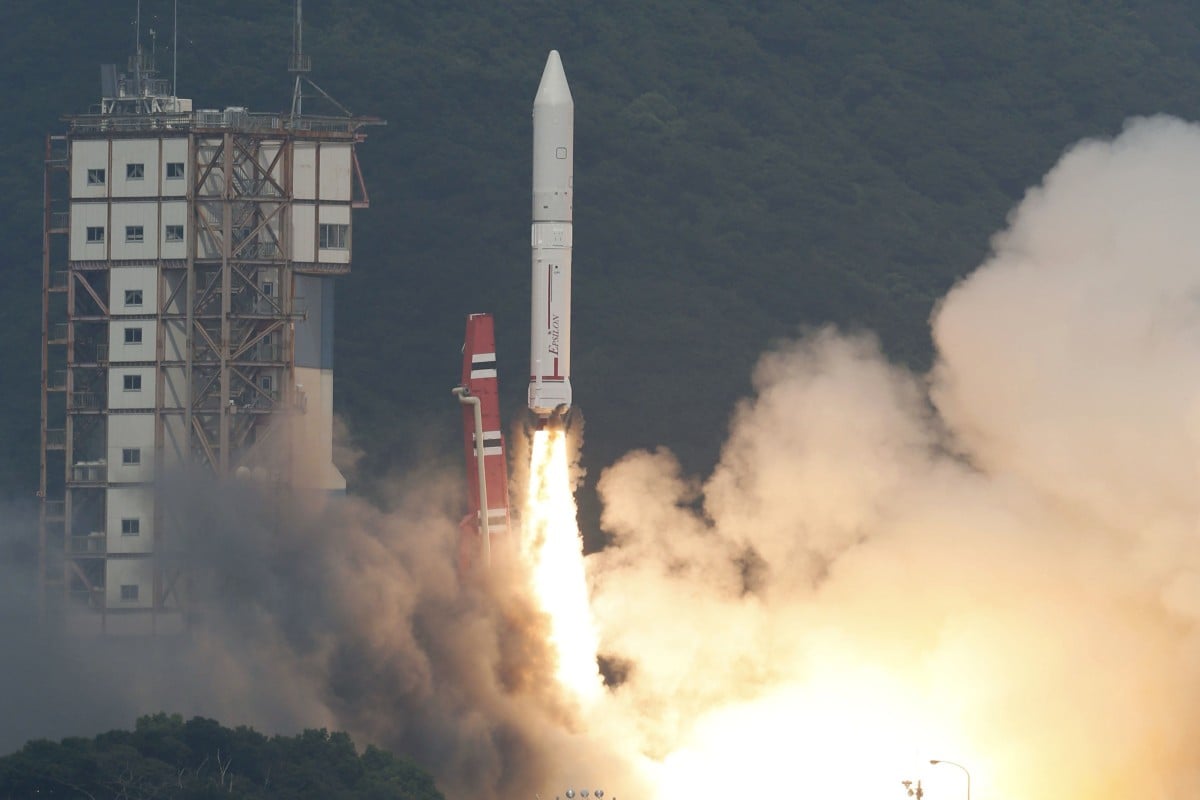
A 3 stage Japanese Epsilon research rocket (potentially an ICBM) being launched from Uchinoura Space Center in southern Japan.
---
Modern ballistic missiles generally have solid fuel stages (for quicker preparation and more rugged handling) rather than liquid. So it is more than a coincidence that the first, second and third stages of the Epsilon are solid fuel.
The Epsilon's specifications are very similar to the fully developed (but then cancelled) US MX missile ICBM. For comparison the MX's specs are Height 22m, Diameter 2.3m, Weight 97 tons, 3 stages, blast yield 3 Mt total (using up to 10 MIRVs).
The extent to which the US assisted JAXA's Epsilon Project is unclear. Japan Aerospace eXploration Agency (JAXA) is Japan’s NASA equivalent. Space agencies have dual military-civilian use technology and dual-use career personnel. JAXA, and of course NASA, are dual-use - although space agencies rarely admit this.
---------------
More see Doug Tsuruoka, "Can Japan's Epsilon rocket be used as an ICBM?" Asia Times, on January 23, 2018, at https://asiatimes.com/2018/01/can-japans-epsilon-rocket-used-icbm/ which answers in the affirmative.
The Japan Aerospace Exploration Agency's (JAXA) solid-fueled Epsilon rocket launched seven different satellites into orbit from Uchinoura Space Center on January 17, 2018.
---
These armament plans have raised regional concerns that Tokyo may be shedding its post-World War II pacifist defense posture.
"What is worrisomely ... is that Japan's rearmament would be met with China's reaction, which could cause regional instability," Korea National Defense University Japan researcher Park Young-june said.
The United States, however, is seen as supportive of Japan taking on a more assertive regional role, as it could be useful in meeting the challenge of China's growing military might."
Background

No comments:
Post a Comment
You can comment :)